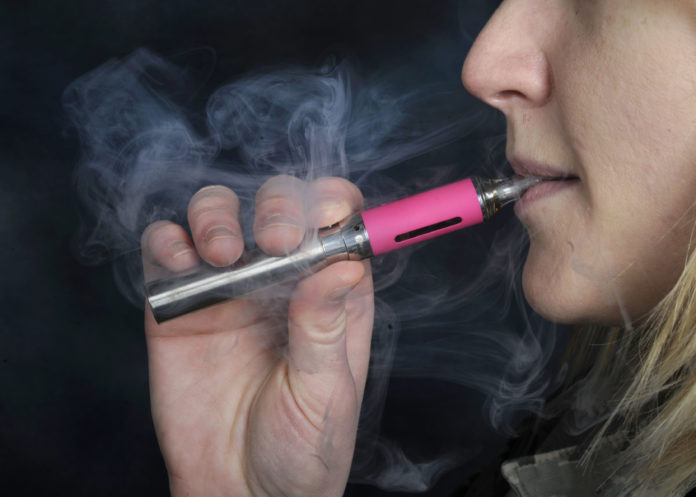
Fewer than 6 out of 10 smokers and ex-smokers in the UK accurately believe that e-cigarettes are less harmful than tobacco cigarettes.
Research from King’s College London has found that smokers and ex-smokers in the UK overestimate the harm from vaping. Fewer than 6 out of 10 accurately believe that e-cigarettes are less harmful than tobacco cigarettes. Misperceptions appear to be on the increase and are particularly strong in smokers and those who have never tried vaping.
The Cancer Research UK-funded study, published today in the journal Addiction, used an online Ipsos Mori survey of 1720 UK smokers and ex-smokers to assess knowledge about nicotine. It also assessed perceptions of the relative harms of smoking, e-cigarettes and nicotine replacement therapy (NRT).
Lead researcher Dr Leonie Brose, from the Institute of Psychiatry, Psychology & Neuroscience, said ‘Tobacco cigarettes kill over half of those who smoke long-term, yet very few people know that nicotine is not the direct cause of smoking-related death and disease. We found those people who think nicotine is to blame for harms from smoking are more likely to think e-cigarettes and NRT are just as bad as smoking.’
In 2012, 66.6% said vaping was less dangerous than smoking, with 60.4% in 2014 and 57.3% in 2017. At the same time, the proportion of people who think smoking and vaping are equally harmful is rising, from 9% in 2012 to 16.9% in 2014 and 21.8% in 2017
When asked about the relative harms of e-cigarettes and tobacco cigarettes only 57.3% correctly said vaping was less harmful than smoking, while 21.8% said equally harmful, 3.3% said more harmful and 17.6% didn’t know. For NRT, 63.4% said it was less harmful than smoking.
Previous research from the same team suggests the proportion of people with accurate knowledge is dropping: in 2012, 66.6% said vaping was less dangerous than smoking, with 60.4% in 2014 and 57.3% in 2017. At the same time, the proportion of people who think smoking and vaping are equally harmful is rising, from 9% in 2012 to 16.9% in 2014 and 21.8% in 2017.
While efforts were made to make sure participants represented different demographics, the authors note that the results may not fully represent the general smoking population.
Knowledge about nicotine was particularly poor, with nearly nine out of ten misattributing a greater portion of the risk in smoking to nicotine, and nearly four out of ten wrongly believing nicotine is what causes cancer from smoking.
Smokers who have never vaped were more likely to have misperceptions about nicotine and the relative harm of e-cigarettes and NRT compared with tobacco cigarettes. On the other hand, smokers who had tried vaping or were regular vapers were more likely to say that a very small portion of the health risk in cigarettes comes from nicotine.
Dr Brose said: ‘It is possible that smokers may not try e-cigarettes or NRT due to inaccurate beliefs about nicotine and vaping. A lot of public discussion and media reporting focuses on harms from vaping, but we rarely see any reports on how deadly smoking is – 1500 people die from smoking-related illness every week in England alone. Correcting misperceptions around nicotine may help smokers move towards less harmful nicotine delivery methods.’







